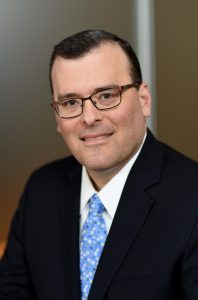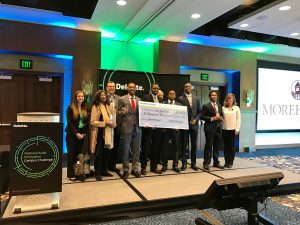by Marygrace Schumann
June 8, 2017
Faced with a continuous need for innovation and a growing skills gap, companies are getting creative and forging partnerships with educators and students to get a jump on identifying and developing the next generation of accountants and auditors.
At Deloitte, a global professional services firm, partnerships include the annual Robert M. Trueblood Seminars for Professors, hosted by the Deloitte Foundation and the American Accounting Association since 1966. More than 60 professionals and educators from schools including the University of Colorado-Boulder, Villanova University and Michigan State University joined Deloitte staff in February and March at Deloitte University, the company’s corporate university campus outside Dallas, to review and provide feedback on case studies on accounting, auditing and the evolution of the practice.
In addition to the seminars, Deloitte also sponsors the Audit Innovation Campus Challenge to introduce students to the challenges they’ll be expected to face and the analytical skills needed when they graduate. This year’s challenge featured student teams from 33 colleges and universities competing to reach the finals, where students from Morehouse College topped the competition from Pace University, the College of William & Mary, the University of Pittsburgh, University of Wisconsin and the University of Southern California.
Jon Raphael, chief innovation officer at Deloitte & Touche LLP and head of the firm’s audit innovation team, spoke with Chief Learning Officer about how and why Deloitte works with universities to shape the education curriculum and how that external focus drives innovation back at the firm.
Chief Learning Officer: How are companies and universities working together to develop curriculum that speaks to new challenges in the workforce?
Jon Raphael: We bring professors into Deloitte at Deloitte University and take them through case studies and provide data that they can take and bring back to the classroom. We spend time as a part of these programs sharing where we are today and where are we going to be tomorrow so we can help shape that vision, working in partnership with academia to get the next generation of professionals as prepared as they can be to work in a professional services firm and Deloitte in particular.

CLO: In what ways do you think organizations are rethinking their investment in the future workforce?
Raphael: We are very focused on bringing new kinds of innovation into how we’re looking toward the future of audit. That innovation can be technology [and] it can be process or people, but it’s a huge investment in rethinking how work gets done and how you can do it in such a way that you can enable, particularly younger professionals, to really drive change and get way more involved with the audit process. It isn’t something that’s done in an ivory tower. It’s really something that we’re trying to decentralize and get out to the whole practice.
CLO: How big of a focus is there on technology?
Raphael: It’s a big focus but it’s not the primary focus. The primary focus is on culture and on how we enable innovation within our business. Technology is a big part of that — that’s just the way it is in today’s world. But without the culture and the ideas and the connections, the technology can sit on a shelf.
But more importantly it’s about how do we want to do what we do and keep the human in the loop and having people very much a part of how we serve our clients. It’s critical to the strategy. I’d say [more] important than any individual technology in terms of where we’re going.
CLO: How are you implementing and creating the technology to serve the culture?

Raphael: We’re very focused on getting ideas from all of our professionals and we even put on challenges within our organization for all of our people where we ask them for ideas on how they would innovate. Those ideas then get filtered and we come up with a finals list. Those teams end up presenting to senior leadership and audit, including the CEO of audit, and the winner gets funded. We actually take their ideas and we create those tools.
On the back end in terms of getting it out to the practice, it comes back to user experience, how do we make these things so the technology just becomes a part of the fabric of our organization. We don’t have people going out and saying, “This technology is the reason why we do a good job.” We do a good job because we have the best professionals.
Just recently we did it on a campus level. We put out an ask for innovation as it relates to the audit process to universities and we then had regional competitions where individual schools would come in and compete and talk about what their vision was and did the same kind of protocol with us at Deloitte University to come up with a winner.
These really bright students were able to bring these ideas that frankly were high quality. It just goes to show in this new world the level of comfort with technology from younger folks. We’re able to see a huge acceleration of impact through ideas or people who haven’t even started yet in the profession just because they’re learning about it and they have ideas about how to apply technology in new ways.



